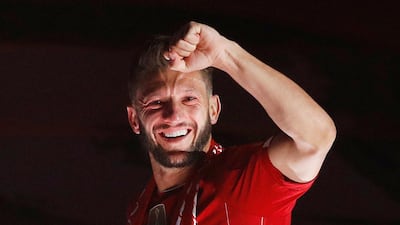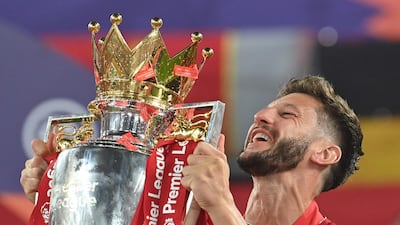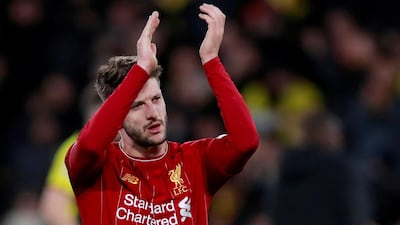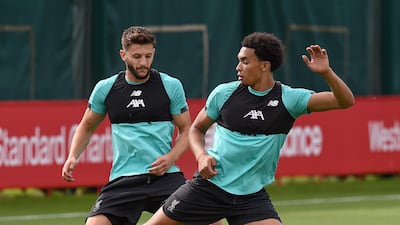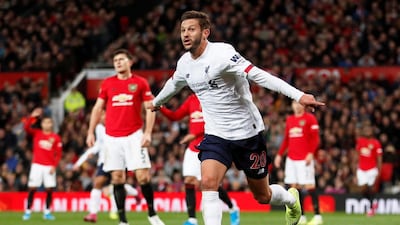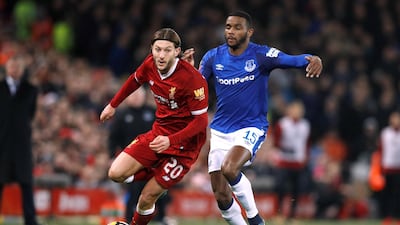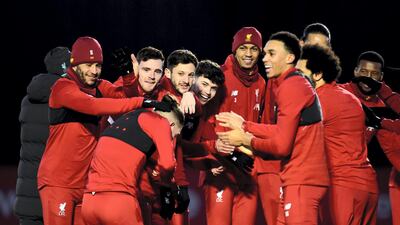Adam Lallana has signed two contracts this summer. It is a sign of the esteem in which he is held at Liverpool that they extended his deal by a month, at some cost to themselves, to ensure that one of Anfield’s first bona fide Jurgen Klopp players remained at the club for their title celebrations.
The second, a three-year deal with Brighton & Hove Albion, is longer and may contain more footballing significance. Ambition has been evident in Sussex this season, but everything was predicated on Brighton staying in the Premier League.
They underwent a footballing revolution, from having the 17th highest share of possession in 2018-19 to the seventh, but relegation would have undermined a regime who rejected pragmatism and prosaicness.
Instead, a transformation continues with the recruitment of Lallana. His previous move cost Liverpool £25 million (Dh118m) even if two of the most influential managers of the current generation, in Mauricio Pochettino and Klopp, drew more from him than Brendan Rodgers, who authorised that fee.
His list of admirers amounts to a who’s who of people at the forefront of progressive thinking, the men who look to combine pressing with passing.
The former FA technical director Dan Ashworth has assumed the same role at Albion; Lallana was named England’s player of the year in 2016 and, had he been fully fit, would have probably assumed a key role in Gareth Southgate’s plans for the 2018 World Cup.
Graham Potter has acquired a purists’ player. Tellingly, the Brighton manager talked of Lallana’s “technical quality”. “A really exciting signing,” he said. “A perfect match,” added Lallana. This could be a meeting of minds.
In his profile and his wages, if not his transfer fee, he represents one of Brighton’s biggest signings. He also marks a change of policy. Albion have generally looked to the Dutch and Belgian leagues in search of invention, but they have had negligible returns from Alireza Jakanbakhsh, Jurgen Locadia and Jose Izquierdo. Attempts to find value in cheaper markets have backfired. A clearout of record buys may begin.
A creative contingent of Lallana, Pascal Gross, Aaron Mooy, Leandro Trossard and Alexis Mac Allister promises a better supply line to Neal Maupay and Aaron Connolly and Brighton most require improvement and incision in the final third.
Despite their transformation into a ball-playing team, they only scored 39 goals this season. Over three Premier League campaigns, they average under a goal a game.
In one respect, a player with a solitary strike in three years may seem an illogical addition in a bid to make a team more prolific. The concern is whether Lallana is the player of old. His major honours have come in the last 14 months but he peaked between 2012 and 2017.
He was one of the most important individuals in Klopp’s first 19 months at the helm, a catalyst who took them into two finals and the Champions League, but, because of injuries and upgrades, a bit-part player thereafter.
His last three years could be remembered for the autumn equaliser at Old Trafford that extended Liverpool’s unbeaten start or the rusty performance as a substitute when Mohamed Salah was injured in the 2018 Champions League final.
He has only started nine of Liverpool’s last 114 league games and, while Klopp is such a fan he tried to convert Lallana into a No 6 to give him a second opportunity to get into the team, that experiment was quietly abandoned.
The presumption is that Brighton will use Lallana further forward. His versatility in attacking areas will allow a flexible manager to shift shape at will.
Potter, Lallana said, has “changed the dynamics” at Albion. Now his own arrival with accelerate the change.
